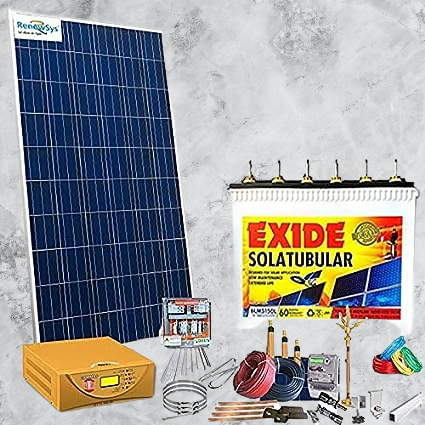Can four solar panels of 220 watts 24 volts charge four batteries of 12 volts 200ah?
Yes, it is possible to use four solar panels rated at 220 watts and 24 volts to charge four batteries rated at 12 volts and 200 ampere-hours (Ah). However, there are a few considerations to keep in mind:
1.
Voltage Compatibility: The voltage of your solar panels (in this case, 24 volts)
should be higher than the voltage of your batteries (12 volts). This allows for
efficient charging. You'll need a charge controller to manage the charging
process and prevent overcharging.
2.
Parallel or Series Connection: If you connect the solar panels in
parallel, the voltage will remain at 24 volts, but the current capacity
(amperage) will increase. If you connect them in series, the voltage will
increase to 48 volts. You'll need an MPPT (Maximum Power Point Tracking) charge
controller for a series configuration, as it's more efficient for higher
voltage systems.
3.
Charging Efficiency: Keep in mind that not all of the 220 watts from each panel
will be converted into charging power. Factors like temperature, shading, and
the efficiency of the charge controller will affect the actual charging
efficiency.
4.
Battery Capacity and Discharge: The batteries have
a capacity of 200 ampere-hours (Ah). It's important to make sure that your
solar panels can provide enough charge to replenish what's been used. If you
consistently discharge the batteries deeply, you'll need more solar capacity to
recharge them.
5.
Daily Sunlight Exposure: The amount of energy
your panels can harvest depends on the amount of sunlight they receive. If
you're in a region with consistent and strong sunlight, this will be more
effective than in a region with frequent overcast days.
6.
Sizing of Charge Controller: Ensure that the charge controller is
appropriately sized for the total solar panel capacity. It should be capable of
handling the total current output of the panels.
7. Overcharging Protection: A charge controller is essential to regulate the charging process and prevent overcharging, which can damage the batteries.
8.
Wiring and Connectors: Use appropriately
sized wiring and connectors to handle the current and voltage levels involved.
It's recommended to consult with a solar professional or an electrician who is
experienced with solar installations for a more detailed and accurate
assessment of your specific setup. They can provide guidance on the best
configuration, wiring, and equipment to use for your particular situation.
.jpg)
~2.jpg)


%20(31).jpg)
Comments
Post a Comment